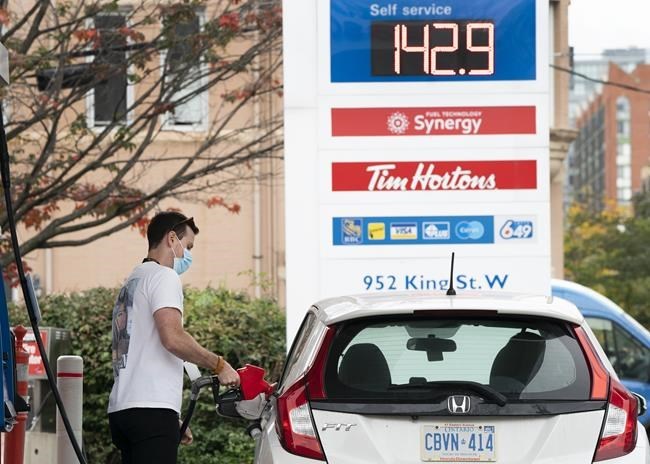OTTAWA — Consumers and businesses expect increases in the cost of living to stay hot over the next year, the Bank of Canada says as part of surveys results that also show people more willing to search for new jobs, and businesses willing to pay more for workers.
The bank's survey of consumer expectations shows the outlook for inflation over the next year hit a new high in the quarterly survey. Respondents expected inflation to be around 3.7 per cent over the next 12 months.
Still, consumers tell the bank they expect inflation will slow whenever the pandemic ends.
Meanwhile, almost half of businesses surveyed expect the pace of price increases to stay above three per cent over the next two years, fuelled by a combination of supply-chain bottlenecks, bumps in food and energy prices, and actions by the Bank of Canada and federal government to stimulate the economy.
And they also plan to pass on higher costs to consumers.
The Bank of Canada has let inflation run a little hot to help the economy recover from the hole dug by COVID-19, saying the elevated readings are temporary issues that should work themselves out.
"Were they to broaden and be sustained, that would be more of a concern. So to get a sense of if that is happening, we're certainly looking at measures of expected inflation very closely," bank governor Tiff Macklem told reporters following meetings in Washington, D.C., with his global counterparts.
The central bank has a scheduled rate announcement on Oct. 27, but has previously said its target overnight rate will stay at 0.25 per cent until the economy is healthy enough to handle a rate increase, which the Bank of Canada expects later next year.
"Despite the increases in business and consumer inflation expectations for the near-term, this report suggests that the Bank of Canada can comfortably continue pushing back against the hawkish pricing for (a) rate hike by markets," CIBC senior economist Royce Mendes wrote in an analysis of the survey results.
A combination of pent-up demand set to be unleashed — respondents with extra savings said they planned to spend one-third of the funds by the end of 2022 — and the rollback of restrictions helped businesses sentiment grow in the third quarter.
If demand unexpectedly rises, as some experts worry could happen, the bank says "an unusually large portion of firms" say they would have problems handling any surprise spending surge.
The reasons are twofold: Labour shortages and supply-chain issues like shipping delays that firms don't see abating until the second half of 2022, which the bank noted is longer than previously anticipated.
"If not resolved, these factors could weaken the pace of Canada's economic recovery," wrote TD senior economist Sri Thanabalasingam.
"Businesses are not expecting supply chain issues to fade any time soon. Labour shortages could also last for some time, due to mismatches between labour supply and demand. This is likely to lead to higher prices, and firms are recognizing that."
Businesses are more willing to offer higher wages to attract and retain workers, with the upward pressure on wages expected to persist beyond the next 12 months.
The twin surveys show workers are more willing to retire or leave their jobs to look for new work, with the reported likelihood of leaving a job back to pre-pandemic levels.
Workers told the central bank they're more likely to quit their jobs in the search for better hours and pay, or a change in industry, which was more often the case in lower-wage sectors hit harder by the pandemic.
This report by The Canadian Press was first published Oct. 18, 2021.
Jordan Press, The Canadian Press



